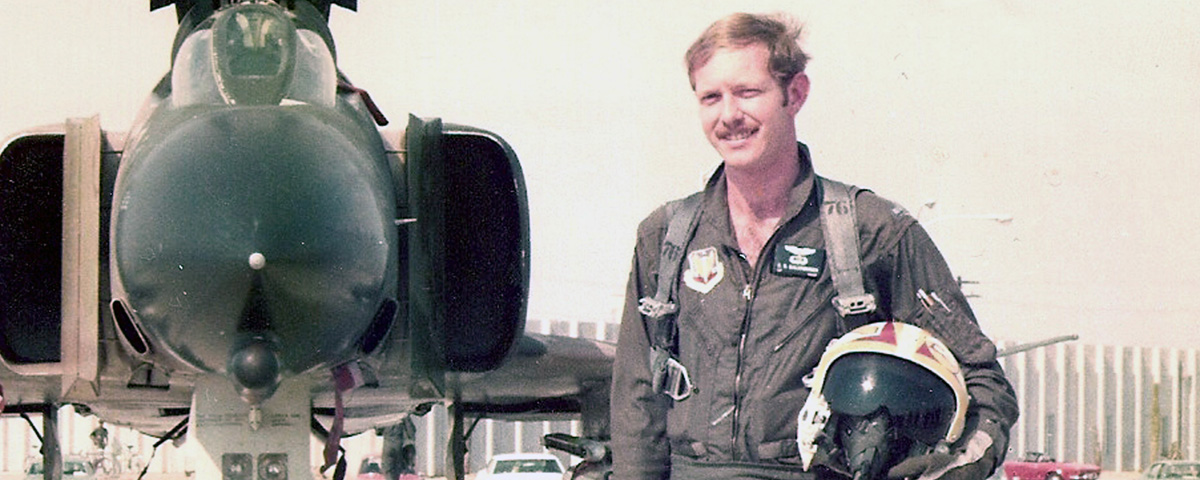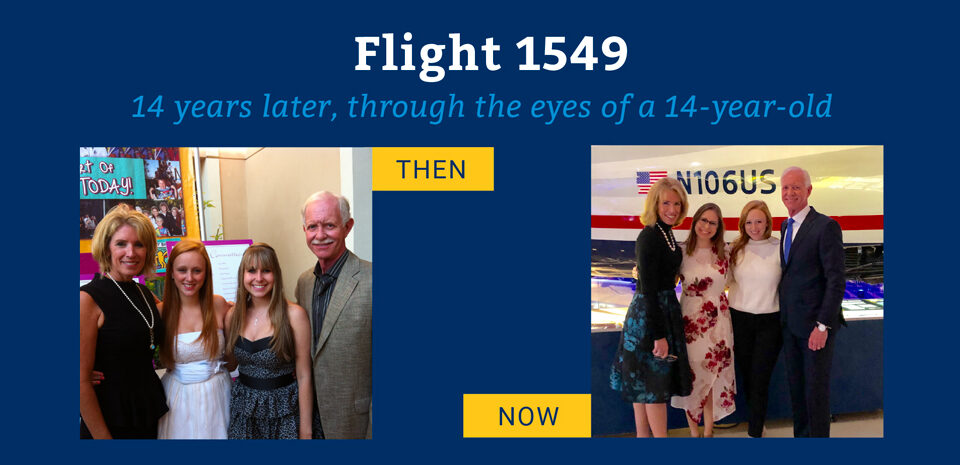Connecting Our Veterans to Help Each Other

Back-to-back bird strikes prompt new call to address danger
September 4, 2014
‘Miracle on the Hudson’ pilot sits down with cadets
October 22, 2014
Standing in front of an F-4 jet fighter during my service in the Air Force during the mid-70's.
Our veterans often face unforeseen challenges and difficult life events after leaving the military and returning to civilian life. The adjustment can raise a series of questions and concerns regarding family and relationships, jobs and employment, retirement from service, and grappling with the death of a family member or friend. We all deal with the transition differently, and our own personal response to these events may catch us off guard. Why am I feeling like this? Is this normal? Shouldn’t I be happier to be home? Am I the only one who feels this way?
It can be hard to verbalize thoughts of depression, sadness, anxiety, or stress – even to our closest family and friends – and I know firsthand how difficult it can be to ask for help in dealing with these feelings. After serving as a fighter pilot in the United States Air Force for five years, I had adjustments to make to return to civilian life, and I never saw combat. More recently, I experienced some short-term symptoms of post-traumatic stress disorder (PTSD) following the Hudson River landing of Flight 1549 in January 2009, including sleeplessness, elevated blood pressure and heart rate, distracted thinking, and flashbacks. And, as I recently wrote about in my blog, my father suffered from depression throughout his life, eventually committing suicide.
I think it’s important to have a national dialogue focused on depression and mental health, which is why I am proud to support the Make the Connection initiative. This important public awareness campaign by the U.S. Department of Veterans Affairs helps Veterans discover ways to improve their lives by hearing from fellow Veterans and their families about their own experiences in adjusting to civilian life. The website, www.makeconnection.net, offers Veterans and their families an opportunity to confidentially explore information about physical and mental health symptoms, discover available resources and possible treatments and view hundreds of videos from Veterans sharing their powerful recovery stories.
![VSR-120 MTC Spread the Word Web Graphics(sw)1.0d[1]](https://www.sullysullenberger.com/wp-content/uploads/2014/09/VSR-120-MTC-Spread-the-Word-Web-Graphicssw1.0d1-1024x512.jpg) Make the Connection brings together veterans of all service backgrounds who share their personal stories to encourage men and women who have experienced similar feelings of self-doubt, anxiety, loneliness and depression to reach out for help. It can be hard to remember that you are not alone – millions of people are struggling with these same emotions and undergoing similar challenges. Make the Connection gives our Veterans and their families the support they need to succeed and lead a fulfilling life – and is a fitting thank-you to these men and women for their service and sacrifice.
Make the Connection brings together veterans of all service backgrounds who share their personal stories to encourage men and women who have experienced similar feelings of self-doubt, anxiety, loneliness and depression to reach out for help. It can be hard to remember that you are not alone – millions of people are struggling with these same emotions and undergoing similar challenges. Make the Connection gives our Veterans and their families the support they need to succeed and lead a fulfilling life – and is a fitting thank-you to these men and women for their service and sacrifice.

